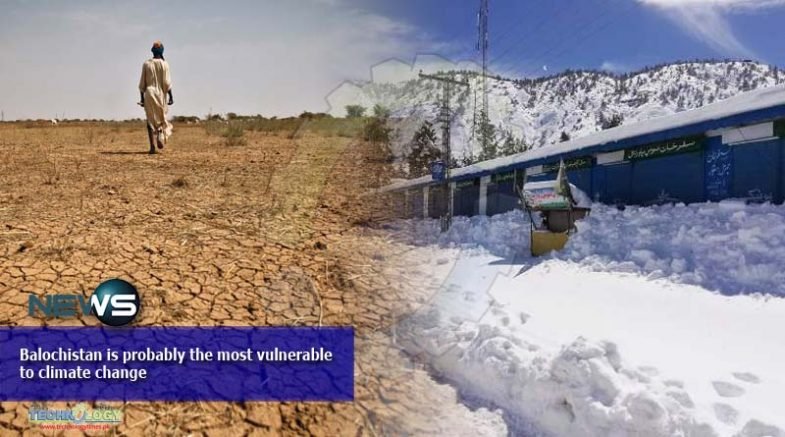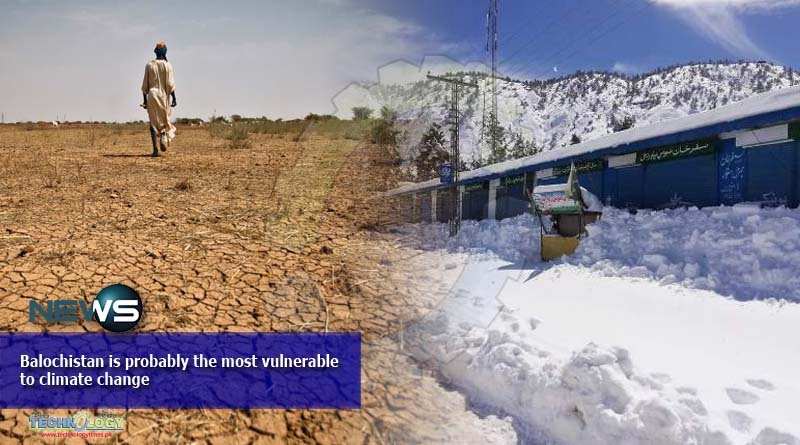Balochistan is probably the most vulnerable to water stress situation and climate change but is less equipped to deal with their negative consequences.
 Climate change is making the precarious situation worse by altering the water and weather patterns around the globe, causing droughts and water shortages in some parts of the world but floods in the others.
Climate change is making the precarious situation worse by altering the water and weather patterns around the globe, causing droughts and water shortages in some parts of the world but floods in the others.
Luckily Balochistan received snowfall, particularly in North of Baluchistan and immediate South of the province this winter which never seen in almost a decade.
But Baluchistan is now experiencing erratic and sparser rainfall and snowing generally. Many places in the province used to receive snowfall, the frequency and intensity of which has reduced over the years, in some places, quite dramatically. This is having grave impacts on the quality and quantity of water resources in the province.
Many fear if the current patterns were to continue, the situation is expected to get worse. Two-third of the population Balochistan may not have access to water by 2025.
Already the environmental and climatic changes have affected the province badly over the decades. The Karez system which is an indigenous method of irrigation in which groundwater is tapped using tunnels and underground water channels have almost vanished barring few places.
Over drilling of underground water tables for illegal tube-wells is another threat to depleting water reservoirs.
Climate change is interlinked and it is also related to the deforestation. if preserved Historic Ziarat’s juniper forests in Balochistan can help dent in warming.
